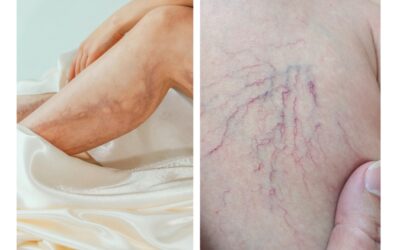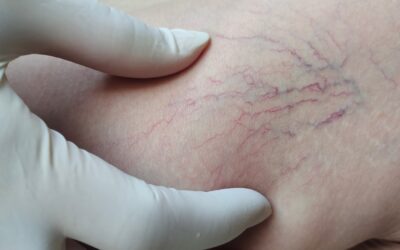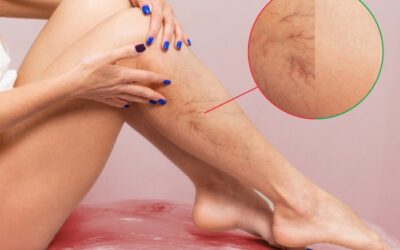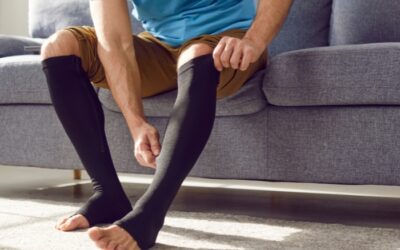Have you noticed persistent itching on your legs, especially around visible veins? While itchy skin is often caused by dryness, allergies, or irritation, it can sometimes signal a more serious underlying issue: varicose veins. Varicose veins are not just a cosmetic concern—they can affect circulation and skin health, and itching may be an early sign of vein dysfunction.
In this article, we explore why varicose veins can cause itching, other symptoms to watch for, risk factors, and effective ways to relieve discomfort. Understanding these signs can help you protect your leg health and prevent complications.
Table of Contents
- What Are Varicose Veins?
- Why Varicose Veins Cause Itching
- Other Symptoms That Accompany Varicose Veins
- Risk Factors That Contribute to Varicose Veins
- How Varicose Veins Are Diagnosed
- Ways to Relieve Itching and Discomfort
- When to Consult a Vein Specialist
- Final Thoughts
1. What Are Varicose Veins?
Varicose veins are swollen, twisted veins that usually appear in the legs. They develop when the valves inside the veins fail to function properly, causing blood to pool and increasing pressure within the vein. This pressure can lead to visible bulging veins, discomfort, and even skin changes over time. Beyond cosmetic concerns, varicose veins can impact circulation in the lower extremities. Poor blood flow contributes to swelling, heaviness, and irritation in the surrounding skin, which can manifest as itching. Understanding the connection between vein function and skin health is key to recognizing early symptoms.
2. Why Varicose Veins Cause Itching
Itching often occurs around varicose veins due to a combination of factors. Increased venous pressure from blood pooling can stretch the veins and irritate surrounding skin. Chronic venous insufficiency may also trigger inflammation, leading to itchy sensations.
In some cases, the skin overlying varicose veins may become dry, tight, or inflamed, contributing further to itching. Venous eczema—a skin condition associated with poor vein function—can also develop, causing redness, flaking, or persistent itchiness. While it may seem minor at first, untreated itching can signal worsening vein issues or increased risk of skin complications.
3. Other Symptoms That Accompany Varicose Veins
Itching rarely occurs alone. Varicose veins often cause a variety of symptoms, including:
- Aching or throbbing sensations in the legs
- Heaviness or fatigue in the lower extremities
- Swelling in the ankles or calves
- Visible bulging, twisted veins
- Tingling, burning, or persistent itching
- Skin changes such as discoloration, dryness, or ulcers in advanced cases
These symptoms often worsen after prolonged periods of standing or sitting. Elevating your legs regularly can help relieve pressure, reduce swelling, and temporarily alleviate itching.
4. Risk Factors That Contribute to Varicose Veins
Several factors increase the likelihood of developing varicose veins and associated symptoms like itching. Age is a major factor, as vein valves weaken over time. Genetics and family history also play a role, as varicose veins often run in families.
Women face higher risk due to hormonal changes during pregnancy, menopause, or while taking birth control, which can weaken vein walls. Carrying excess weight or being obese adds pressure to the leg veins. A sedentary lifestyle—or jobs that require prolonged sitting or standing—can slow circulation and worsen vein function. Recognizing these risk factors allows you to take preventive measures and monitor early symptoms such as itching.
5. How Varicose Veins Are Diagnosed
If you experience persistent itching or discomfort in your legs, a vein specialist will perform a thorough evaluation. The process typically begins with a medical history and physical exam to understand your symptoms, lifestyle, and potential risk factors. Diagnostic tests, such as Doppler or duplex ultrasound, are commonly used to evaluate vein valve function and blood flow in the legs. Specialists may also recommend additional tests to rule out other circulation, nerve, or skin issues. Early diagnosis is important to prevent progression, relieve discomfort, and reduce the risk of complications like venous ulcers or worsening skin changes.
6. Ways to Relieve Itching and Discomfort
You can take several steps to relieve itching and discomfort caused by varicose veins. Staying active through walking, stretching, and leg exercises helps improve circulation and reduces venous pressure. Avoid prolonged standing or sitting, and elevate your legs when resting to minimize swelling and pressure on the veins.
Wearing compression stockings supports vein function and promotes better blood flow, which can alleviate itching. Proper skin care is also essential—moisturize regularly and avoid harsh soaps or irritants that dry out the skin. For severe varicose veins, minimally invasive procedures such as endovenous ablation or sclerotherapy can restore proper blood flow and relieve both itching and other vein-related symptoms.
7. When to Consult a Vein Specialist
Seek professional evaluation if you experience persistent itching, swelling, or discomfort in your legs. You should also consult a specialist if you notice visible varicose veins, skin changes, or reduced mobility. A vein specialist at Premier Vein & Vascular Center can provide a comprehensive assessment, recommend treatment options, and help prevent complications associated with varicose veins.
8. Final Thoughts
Itching can indeed be a symptom of varicose veins, often signaling underlying vein dysfunction or poor circulation. Recognizing this early, making lifestyle adjustments, and seeking professional care can relieve discomfort, improve circulation, and prevent more serious complications. Monitoring your leg health and addressing symptoms promptly is essential for long-term vein wellness.
If you experience persistent itching or other varicose vein symptoms, contact Premier Vein & Vascular Center today. Our expert team can assess your vein health, provide personalized treatment, and help you achieve relief from discomfort while improving overall leg circulation.
Disclaimer: This article is for informational purposes only and does not constitute medical advice. Please consult a qualified vein specialist at Premier Vein & Vascular Center for personalized evaluation and treatment.




